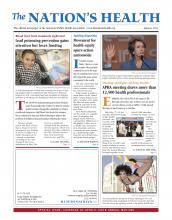A Philadelphia citywide scavenger hunt to map emergency automated defibrillators shows just how valuable the public can be for identifying community health issues, University of Pennsylvania researchers found.
More than 300 teams of Philadelphia residents participated in the MyHeartMap Challenge during which volunteers used a smartphone application to photograph and map locations of as many automated external defibrillators as possible.
The eight-week challenge kicked off in conjunction with the February 2012 National Heart Month to make the public aware of what automated external defibrillators are and how they resuscitate those in cardiac arrest, said Raina Merchant, MD, co-director of the challenge and assistant professor of emergency medicine at the University of Pennsylvania’s Perelman School of Medicine.
The challenge crowdsourced teams of volunteers to locate more than 1,400 defibrillators in more than 500 public and private city buildings. The data collected will be used for a phone app the public can use to find the closest automated external defibrillator to them in an emergency and to create a registry for the device at the city of Philadelphia’s 911 call center. Merchant used blogging, fliers and social media such as Twitter to reach businesses, health organizations and schools about the challenge. The challenge promised a $10,000 prize for locating the most automated external defibrillators.
Places with the highest percentage of all defibrillators were gymnasiums, at 19 percent, followed by schools at 16 percent and office buildings at 11 percent, according to findings presented at the American Heart Association’s November Scientific Sessions meeting. Some participants found defibrillators instantly at a building’s front entrance, while others had to ask around and pound the pavement longer to finally locate one, Merchant said.
Merchant said just having a defibrillator inside a building is not enough. People working inside buildings with automated external defibrillators need to be able to use them in a real emergency, she said.
“You can have 10 AEDs, but if they’re unclearly marked and people don’t feel comfortable using them then it’s the same as them not being there at all,” Merchant told The Nation’s Health.
Merchant said crowdsourcing is a useful public health educational tool to track outbreaks and link the general public with health professionals to better understand and tackle potential public health threats. A tie for first place netted two teams $9,000 each and more participants were ages 40 and older despite the challenge being aimed at young adults in their 20s, Merchant said.
“We felt really encouraged that we were able to reach a really wide audience of the public and provide them with information about a critical cardiovascular health resource that they may otherwise just walk by every day and not pay attention to,” Merchant said.
For more information, visit http://www.med.upenn.edu/myheartmap.
- Copyright The Nation’s Health, American Public Health Association









